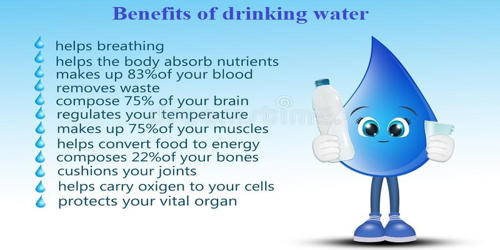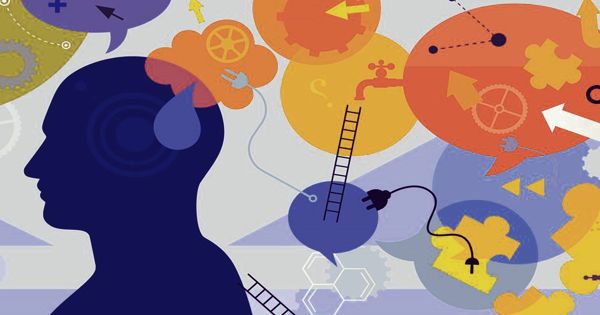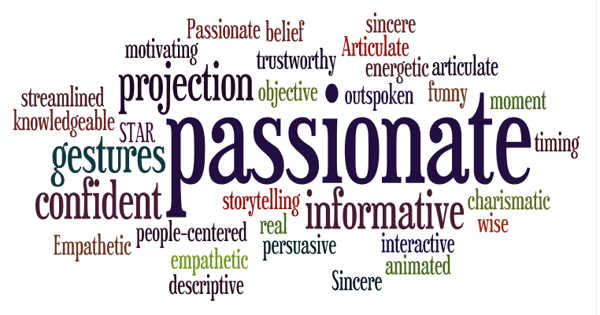Benefits of Drinking Water – an Open Speech
You have been asked to give a speech on the benefits of drinking water in conjunction with World Health Day. Write out your speech.
Good morning everybody. Today is World Health Day and today I am going to talk on the benefits of drinking water.
Water is ranked second to oxygen as essential to life. A person can live for only a few days (only three to seven days) without it. In the human body, water makes up 60 to 70% of body weight and is important in numerous bodily processes and functions.
Every person loses approximately 2.5 liters of water per day through urination, perspiration, respiration, and bowel movements. Very few people replenish this loss. The health benefits of drinking water are many and varied. We cannot and should not understate the importance of drinking water.
First, water revitalizes the skin. The skin is the body’s biggest organ. If you are dehydrated, your skin suffers. Water is nature’s best moisturizer. Drinking sufficient water rehydrates your skin from inside. With age, skin tends to become drier, so drink more as you age. Do tell this to your parents and grand.
Second, water rehydrates your body. Sunken eyes or dark circles are a sign of being drained of fluid and severe dehydration. Waste products that are normally washed out of the body are left in a higher concentration in the throat and mouth. The bacteria that builds up (other than poor dental hygiene) can lead to bad breath.
Then, one main cause of constipation is lack of fluid in the intestine which slows the free flow of the bowel.
Next, blood carries oxygen to the muscles. If water levels are low, you could develop muscle cramps because the process of oxygenating the muscles is inefficient. The conditions above can be avoided by drinking adequate amounts of water daily.
Third, water recharges your mind. A healthy mind is just as important as a healthy body. How many of you feel a lack of concentration on a hot day? Low concentration levels could be due to a dehydrated liver unable to eliminate toxins, causing sluggishness.
Headaches start in the mind and headaches are often a sign of dehydration. The brain is made up of 85% water, so before reaching for a headache pill or 2 Panadols, try a glass of water instead. It could well be the cure.
Fourth, water detoxes. Detoxing is valuable for the body as it cleanses and rids the body of toxins that are present in the air we breathe, the foods we eat, and in many drinks. The body stores these excess toxins as cellulite or oily patches. Toxic overloads can lead to headaches, skin eruptions, constipation, and that sluggish dull feeling in the morning. Using water to detox, eating a healthy diet, and exercising sensibly boost the immune system and give you lots of energy.
Finally, drinking cool (not cold!) water after intense physical activity reduces the body temperature and replenishes water lost through natural perspiration. The body’s temperature rises above normal during exercise. A loss of only 3% of your body’s water content causes a 10% drop in strength and an 8 % loss of speed. Such losses reduce athletes’ performance and records. Hence it is important to drink more than the recommended minimum during intense exercise.
How are we to know that we need water? Thirst is your best indicator. The thirst mechanism is one of the most powerful and sensitive of all the body’s regulatory mechanisms. Listen to it. Be sensitive to its needs. The recommended daily intake of water for an average adult is 2 liters or 8 glasses.
You could try these tips to monitor your water intake. Take water breaks instead of coffee breaks. Choose decaffeinated coffee and tea. Drink water before scheduled physical activity during and after it. Keep a water bottle beside you. Spice up your drinking water with fruit juices or add a slice of lime or lemon to the flavour that cool drinking water.
In conclusion, let us be concerned not only with monitoring our water intake, we have to be just as concerned about the water we consume – it’s quality and safety.
Thank you.
















